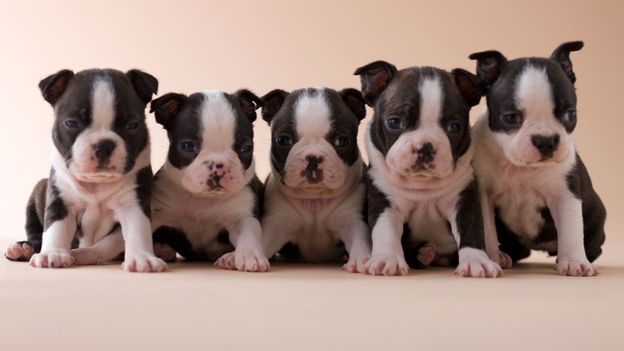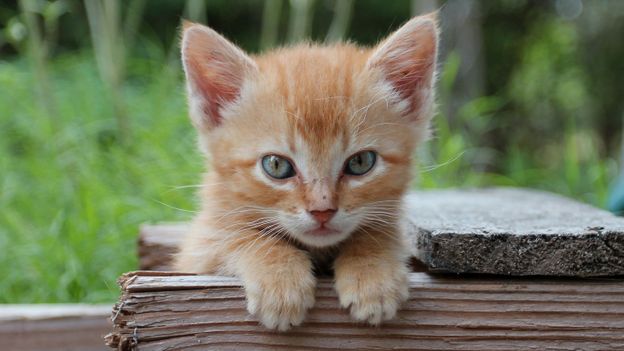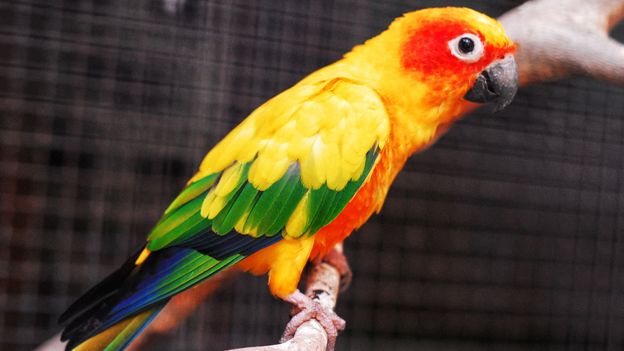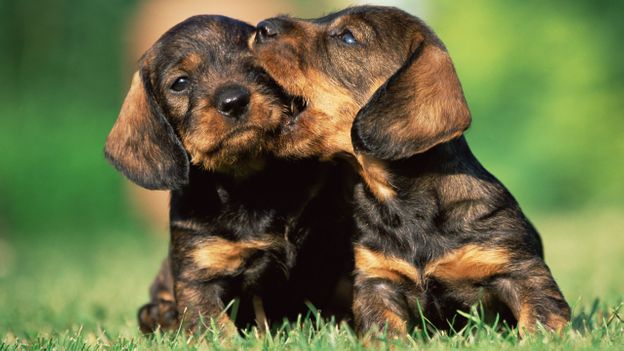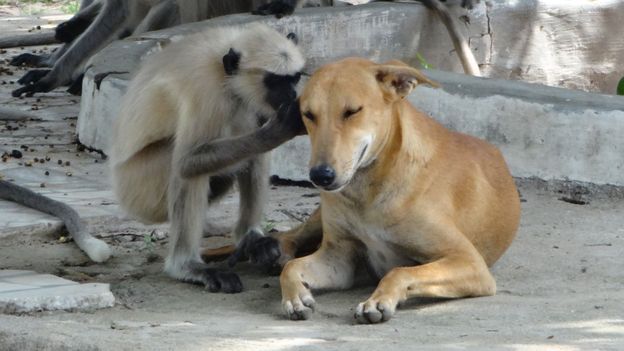Why Do We Love Our Pet So Much
When four chimpanzees captured a young blue duiker to play with, you might at first believe they wanted to keep it as a pet.
They tumbled about with it but in the end it went badly for the antelope. Their playful behaviour was too rough and ended in its death.
The chimpanzees continued to play with the corpse for another 30 minutes.
This was a special case. The duiker was not a "pet" in the sense as we know it.
Animals do not keep pets; you won't see a chimpanzee taking a dog for a walk or an elephant keeping a tortoise for company.
Making an animal part of the family seems to be something only humans do. The question is, why?
It is unclear just how far back pet-keeping goes.
We know that, thousands of years ago, our ancestors likely kept some wolves around. They may have captured them young, domesticated them and found that they were useful for hunting.
Gradually they became tamer companions and evolved into dogs. This could have been as early as 27,000 years ago according to a study published in May 2015.
Ever since, humans have had dogs around, and keeping a pet has become a common part of many cultures.
People don't live longer if they have a pet
This may seem strange when you consider that it is a costly business. Pets get meals, healthcare and a home for life. Though they clearly provide companionship, it is time-consuming and care often goes one way (minus some exceptions like guard dogs).
Many years down the line, your offspring may provide for you. Taking care of close relatives now also makes sense from an evolutionary point of view. They share our genes so ensuring they survive helps our genes to continue.
The same is not true for the family dog, cat or rat. You cannot expect your pet to offer anything material in return. Yet millions of people keep them and consider them an integral part of the family.
Many reasons have been proposed.
For several decades there was a prevailing view that they provided health benefits such as increased psychological well-being and could even make people live longer.
However, the evidence is contradictory. While some research has shown that pets do increase some aspects of health, more recently the opposite has also been found.
For example, research has shown that people with pets tend to have more mental health issues and suffer from increased levels of depression than non-pet owners.
Other studies suggest that the happiness of pet owners is no greater than those who do not keep a furry creature around.
Although these proposed health benefits have largely been debunked in recent years, they are still perpetuated by popular media, says John Bradshaw of Bristol University's School of Veterinary Sciences in the UK. "People don't live longer if they have a pet. The argument that it's adaptive now is out."
But sharing your life with an animal could have been useful in the past. It showed that females were good at providing care for helpless mammals – an indication of the care-giving qualities a future mother might have, Bradshaw says. It also demonstrated and nurtured empathetic behaviour.
Other theories suggest that having a pet such as a dog may be an "honest signal" of a person's wealth. That is, caring for an animal shows the owner has adequate extra resources to provide for it in addition to him or herself.
"There's a lot of history and culture with how we chose to express this desire to look after animals, but basically it is a human instinct that used to be an honest signal of the ability to look after animals," says Bradshaw.
James Serpell, professor of Animal Ethics & Welfare at the University of Pennsylvania, goes one step further and says that there are still evolutionary benefits today to keeping pets.
Because we are such a social species, he says, we are constantly seeking relationship with others – including with our pets. "Humans which lack social support are more vulnerable to disease and infection."
However, he admits that it is difficult to demonstrate this effect and, as we have seen, the results are inconsistent.
Culture also invariably plays a role. Not all societies have pets as we know them.
A cross-cultural analysis of 60 countries found that 52 of them kept dogs, but were only considered companions, or pets, in 22 of them.
Some cultures that keep animals treat them cruelly, as the anthropologist Jared Diamond observed in a tribe in New Guinea.
Meanwhile, the Kiembu tribe in Kenya only keep dogs for protection. They do not even have a word for "pet" in their language, and their dogs are never cuddled or allowed inside.
They become hot or not, just like sneakers become hot or not
Harold Herzog of Western Carolina University in the US, says these differences show that pet-keeping is purely cultural. We keep pets because other people do, because it is "socially contagious", Herzog told an audience at the annual convention for the Association for Psychological Science in New York.
"We do have these general predispositions to be attracted to animate things - we have predispositions to find puppies and kittens cute, but that puppy that is so cute in the US can be perceived as a meal in [South] Korea, so what's going on there?"
His conclusion? That pet-keeping is a result of picking up on social cues from others. In other words, pet-keeping is a meme, a trend that is continually reinforced by its own popularity.
The evolutionary theories to explain pet-keeping are not sufficient, he argues. He points to an analysis of over 48 million American Kennel Club puppy registrations, which found that there are cycles of popularity.
"Dogs can sky-rocket in popularity and can fall just as fast, so when you get these fads in dog breed popularity it takes about 25 years.
"They become hot or not, just like sneakers become hot or not."
The English bulldog, for example, is going through a resurgence in popularity, whereas purebred dogs are no longer preferred. There has also been an increase on dogs being rescued from shelters. These trends, Herzog says, are similar to trends you might see in fashion cycles.
Serpell disagrees. He believes that pet-keeping occurred naturally in hunter-gather communities and so it must be inbuilt.
"The notion that pet-keeping could be sustained by fluctuations in fashion is incomprehensible because we know people are having these kinds of relationships with animals very early in their history."
That may be so, but culture in the form of art, music and language was already around before dogs were.
While an innate attraction to cute or small animals is clearly necessary, says Herzog, it is not sufficient. "For it to become a characteristic facet of a society requires cultural transmission. That's why there are so many regional and historical variations in the frequency and forms of pet-keeping."
It is clearly difficult to pinpoint exactly why humans keep pets, it may be a combination of several factors. Either way, a puppy or kitten is not getting any less cute

